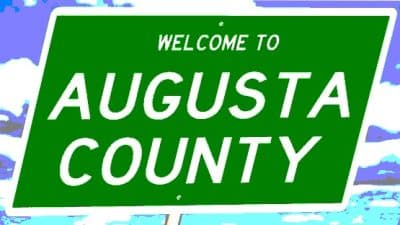
Ah, what a few months and the changing of the leaves can bring. As in, a changing of the guard, and a dramatic one at that. From that early, albeit brief, post-nomination lead, Deeds went on to lose to Republican Bob McDonnell in the governor’s race, and lose historically, paving the way for a GOP statewide sweep.
“It’s pretty astonishing given where people were 12 months ago. You would have thought that Obama had just swept the state, swept the nation, and Virginia was becoming a purple state with a bluish tent. Everything looked pretty good for the Democrats, and all the sudden, almost overnight, it collapses,” said Bob Holsworth, a political scientist and founder and president of Virginia Tomorrow.
Looking further back than last year’s equally historic wins by Barack Obama in the state presidential balloting and Mark Warner’s landslide over Jim Gilmore in the U.S. Senate race, you see a trend of Democratic dominance in state elections dating back to Warner’s 2001 gubernatorial win over Mark Earley.
The raw-vote totals in statewide elections over the next eight years tell an interesting story. Warner received 984,177 votes for governor in 2001. Tim Kaine pushed that total up by about 40,000 votes in his 2005 gubernatorial win over Jerry Kilgore, to 1,025,942. Jim Webb in his 2006 U.S. Senate victory over George Allen was up just shy of 150,000, to 1,175, 606. Bypassing the ’08 presidential election, which had much higher voter participation, as would be expected of a presidential year, we end in ’09 with Deeds getting 814,312 votes, 30 percent off Webb’s ’06 total and 18 percent off even what Warner got back in ’01.
Switching gears, we see Earley in ’01 at 887,234 votes, Kilgore in ’05 at 912,237 votes, Allen in ’06 at 1,166,606 votes, and McDonnell in ’09 at 1,158,254 votes.
The trend: Both sides were growing at similar rates until ’09, when the bottom fell out of the Democratic Party stock.
The question on everybody’s mind on day one of whatever era we’re in now is, Are we in a new era of Republican ascendancy?
“I think what the ’09 election says that Virginia is not a solidly partisan state either way. I don’t think of Virginia as a solidly Republican state or a solidly Democratic state,” Christopher Newport University political-science professor Quentin Kidd said.
Where Warner, Kaine and Webb had success in the ’00s was in being able to reach out to moderate voters at the same time their Republican opponents either had a hard time reaching out to moderate voters themselves or simply lacked the interest in trying to do so. McDonnell cast out early for the center by presenting himself as focused on jobs and the economy, and according to pre-election polls was winning among independents and moderates by a nearly 2-to-1 margin over Deeds among that group, and among all voters had a signficant lead on voter trust on tax and spending issues.
“There’s an increasingly large swing group in the electorate, and for a while they swung to the Democratic side because the Republicans hadn’t solved any problems, and in fact under Jim Gilmore they made matters worse,” Kidd said.
“In the last couple of years it looks like the Democrats haven’t done anything. And so the voters have swung back to the right and voted for McDonnell,” Kidd said.
“It’s the middle swinging, and McDonnell knew it was going to be the middle. Which is why he moderated his image and focused on the economy,” Kidd said.
The problem for Democrats is that unlike when Republicans were losing the top-of-the-ticket races and were yet still able to win races for lieutenant governor or attorney general to have somebody on the bench ready to run for governor and galvanize the statewide ticket in the next election, Democrats in ’09 weren’t able to even come close to peeling off a downticket seat, meaning effectively that there is no bench for 2013.
“The question is, Does somebody try to come back? And the bigger question is, What happens to the party?” Holsworth said.
– Story by Chris Graham










